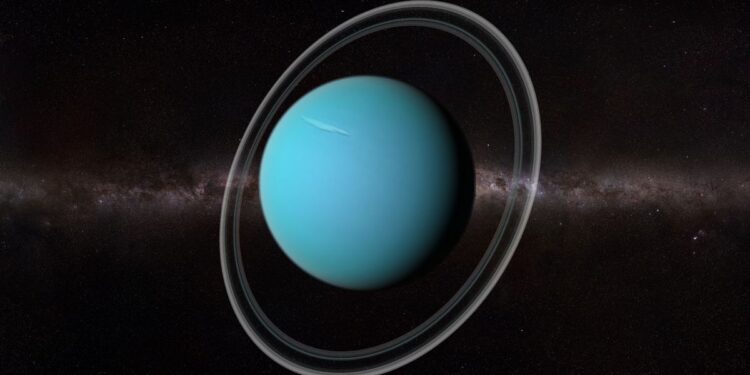On March 13, 1781, British astronomer William Herschel made a discovery that would forever change our understanding of the solar system. While conducting a systematic survey of the night sky from his garden in Bath, England, Herschel observed what he initially thought was a comet or nebulous star. However, this celestial body was actually Uranus, the first planet to be discovered since ancient times.
Herschel, a musician by profession who had developed a passion for astronomy, was using a telescope of his own design when he spotted the unusual object. Unlike the five planets known since antiquity (Mercury, Venus, Mars, Jupiter, and Saturn), Uranus was not visible to the naked eye, which explains why it had remained undiscovered for so long despite being the seventh planet from the sun.
After careful observation of its slow movement, Herschel reported his finding to the Royal Society. Though he proposed naming the new planet “Georgium Sidus” (George’s Star) after King George III, the international scientific community eventually adopted the name Uranus, suggested by German astronomer Johann Elert Bode. The name follows the convention of using classical mythology, as Uranus was the Greek god of the sky.
The discovery was revolutionary for several reasons. First, it doubled the known size of the solar system, pushing its boundaries from 10 astronomical units (Saturn’s orbit) to nearly 20 astronomical units. Second, it challenged the long-held belief that the universe was static and unchanging, opening the door to the possibility of more undiscovered celestial bodies.
Uranus itself is a fascinating world. As an ice giant, it consists primarily of swirling fluids of water, methane, and ammonia surrounding a small rocky core. Perhaps its most distinctive feature is its unusual axial tilt of 98 degrees, causing it to rotate nearly sideways compared to other planets.
The discovery of Uranus marked the beginning of modern observational astronomy. It demonstrated the potential of telescopic observation and systematic sky surveys. Later mathematical analysis of irregularities in Uranus’s orbit would lead to the discovery of Neptune, further expanding our cosmic neighborhood.
Herschel’s chance observation transformed him from an amateur astronomer to a celebrated scientist, earning him the Copley Medal and appointment as the King’s Astronomer. More importantly, it forever changed humanity’s perception of our place in the universe.
newshub



Recent Comments